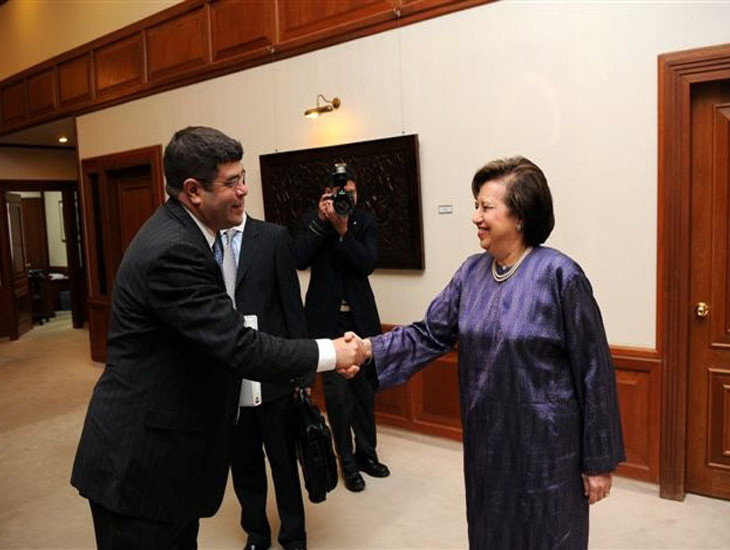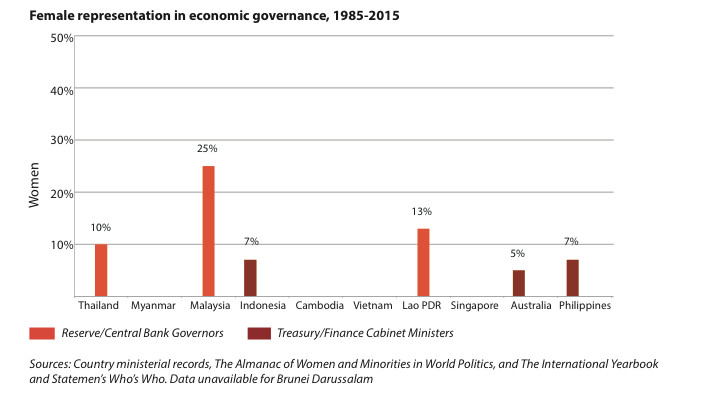Campaigning for change

By Asialink Diplomacy
A growing number of voices across the region are campaigning for more women in leadership, and the scope for change is greater as advocacy groups increasingly build links across borders. With a variety of challenges facing aspiring female leaders, from religious influences to child care demands, there is a need to set priorities for further action.
By ascending to positions in government and business, the positive image of women in leadership can now be magnified by social media. At present, the gains among women from Southeast Asia and Australia do not always push back against gender stereotypes surrounding leadership. With some notable exceptions, especially among mayors and councillors in Indonesia, female politicians are often appointed to ‘soft portfolios’ like family affairs and children, rather than ‘nation building’ portfolios like finance and defence.

By contrast, the corporate sector is arguably more receptive to re-thinking the power of visible female leaders. Given the value of online branding, image conscious businesses are more inclined to respond to pressure on social media, and businesses want to avoid gender blind spots as they pursue female-dominated consumer markets. Women’s purchasing and reputational power is increasingly being used by campaigners to drive women’s leadership.
Technology offers a space for discussion and lobbying which never existed before, and public advocacy has already taken off across the region. The innovative use of ‘hashtag activism’ can propel women’s voices to the forefront of public discussion, although its reach is limited by the usage levels of Twitter, which vary substantially between markets.
Beyond digital technology, the media have a large role to play in coordinating the reach of emerging female leaders. The International Women’s Entrepreneurship Day shows that coordinated outreach to media partners can generate a platform to promote new female leaders, drawing public attention to innovative work by women and ideas worth supporting. Regional surveys constantly stress the potential role of women in media, and these are powerful allies for the NGO sector when fused with new technology.
If this activism targets business thinking, there is a powerful capacity for marketing and public relations which can reach a broader audience.
This can be seen in the example of Procter & Gamble’s #SharetheLoad campaign, which has tried to re-define the responsibility for doing the laundry to include men as well as women, challenging gender stereotypes. Social media campaigns can also target the customer base of larger companies with the hope that it will flow back into business practice.
Another possibility is to rely on sympathetic corporate leaders in Southeast Asia to produce a ripple effect via their business networks. Already, efforts have been made by NGOs to encourage leading companies to partner with women-led businesses, or ensure that gender-sensitive policy changes are reciprocated by suppliers and distributors. This can already be seen in the example of the retail goods outlet ECHOstore in the Philippines, which was set up in 2008 to offer market access for small producers and sources 85% of its supplies from local Filipino women.
One challenge is that social attitudes are difficult to reverse without the risk of public backlash. Naming and shaming campaigns are increasingly popular tactics around the world to push back against gender bias in media and advertising. For all of its power to capture attention and mobilise opinion, one recent OECD study found that social media campaigns struggle to produce the lasting commitment among supporters to overcome hardened attitudes.
For several years, corporate advisory and NGO reports have called for mentoring as a device to strengthen the confidence among aspiring professional women, with the assumption that more assertive leadership is needed by women to overcome forums which are historically favourable to men.
Studies have revealed that higher levels of female participation in public life are associated with lower levels of corruption. With governments championing anti-corruption in places like Indonesia, there is potential to elevate women to drive these efforts.
Despite the growing connections across civil society, women in Southeast Asia and Australia face a diverse range of challenges and opportunities. This is especially significant, as women’s activism is already being pulled in several directions across a patchwork of national and local sensitivities. The value of social networking is in bringing together a critical mass that can’t be ignored, but we should query the effect if cultural perspectives are too dissimilar.
Image: Deputy Secretary Neal Wolin and Malaysian Central Bank Governor Tan Sri Dr. Zeti Akhtar Aziz
Image Source: Wikimedia Commons